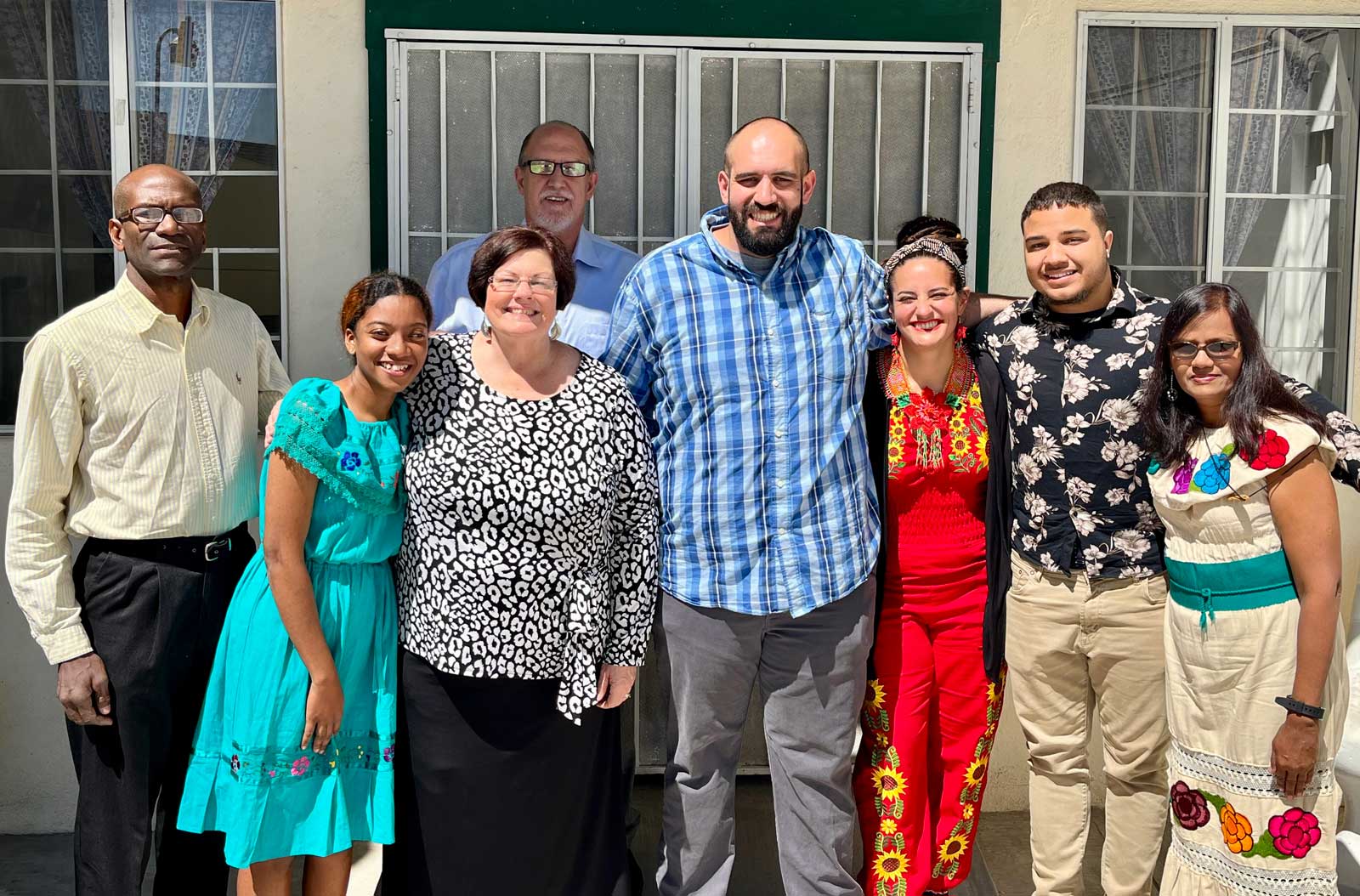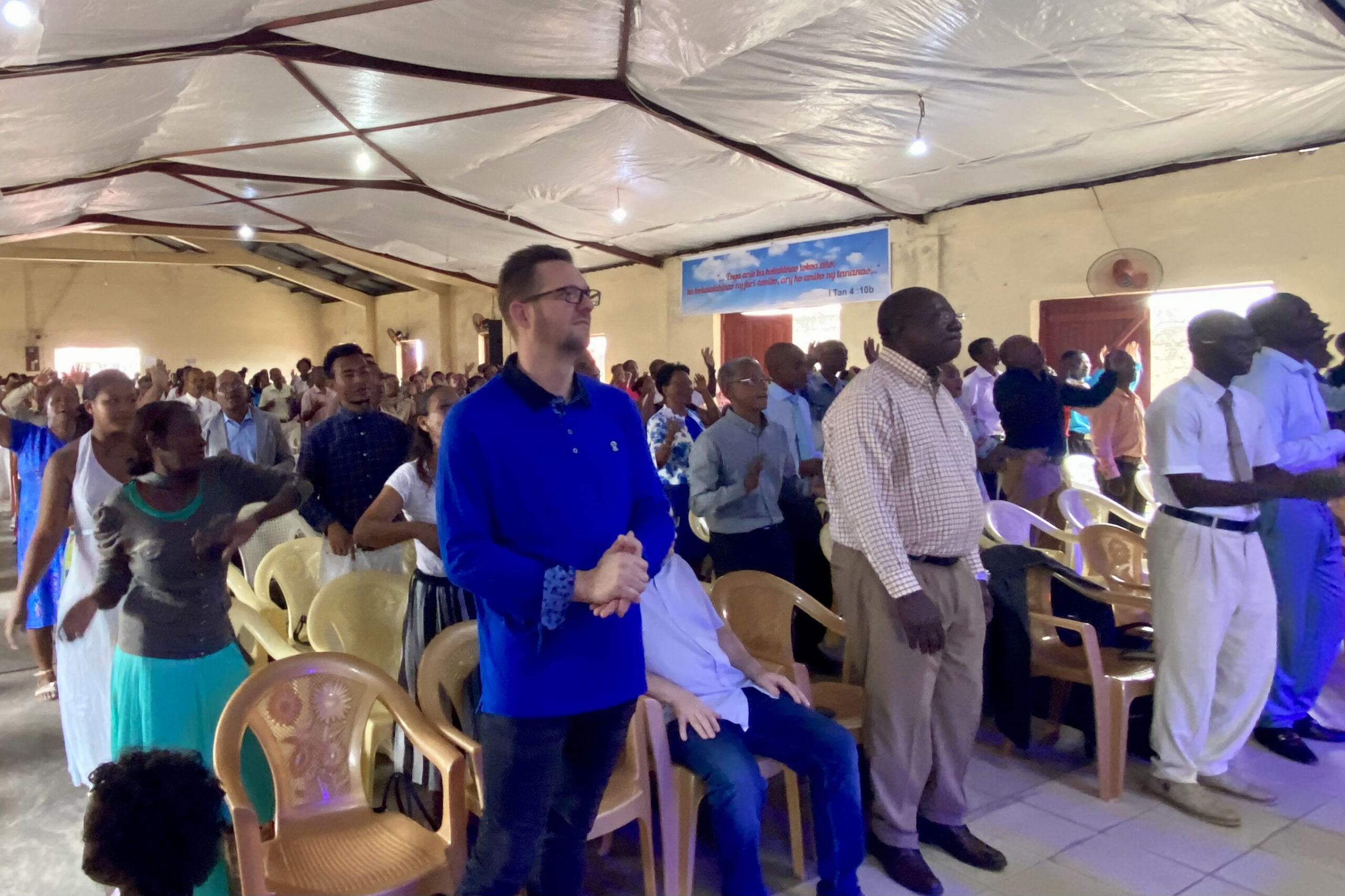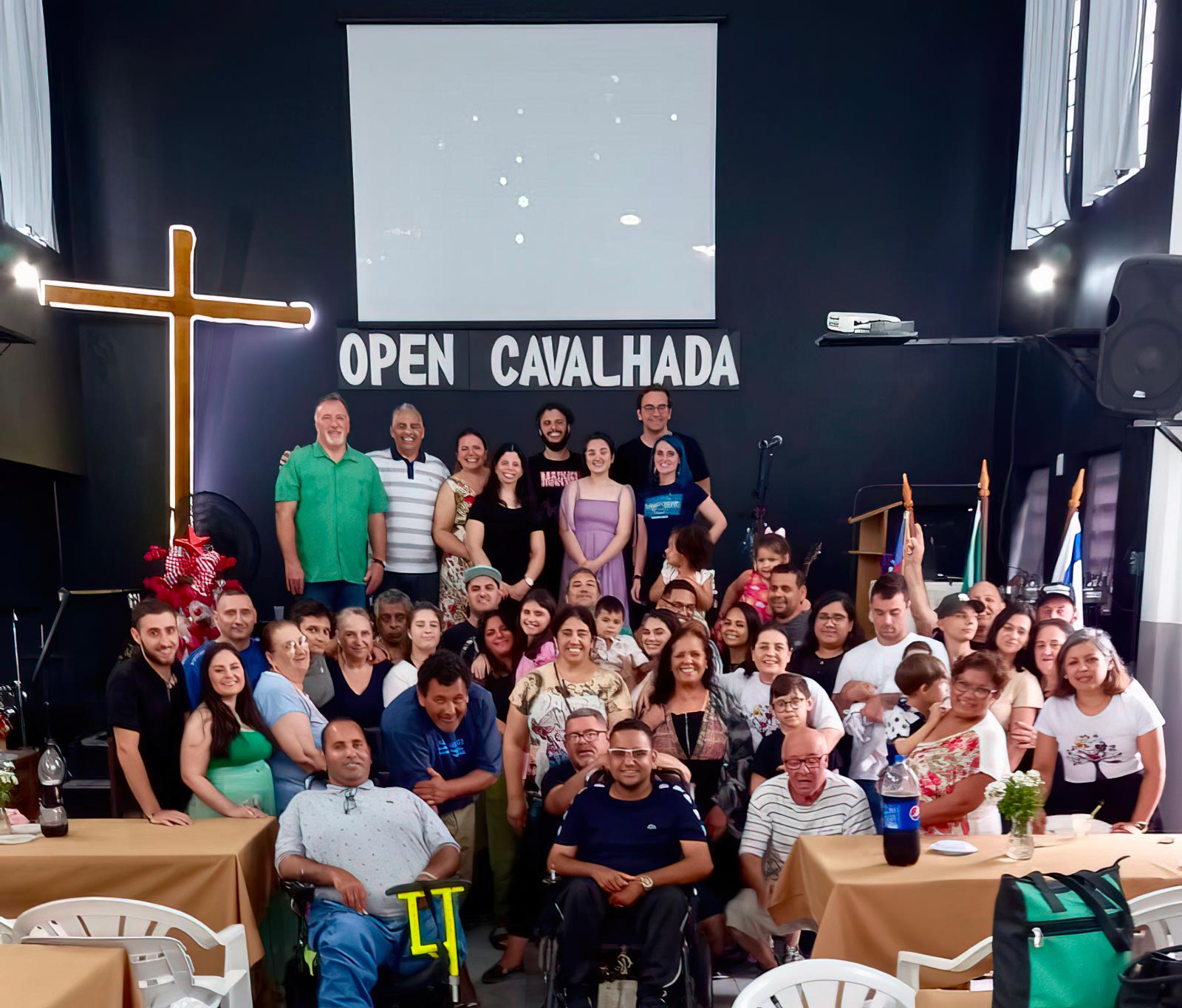Around the World
Empowered by God’s Grace: Our Trip to Ghana
Published
6 years agoon
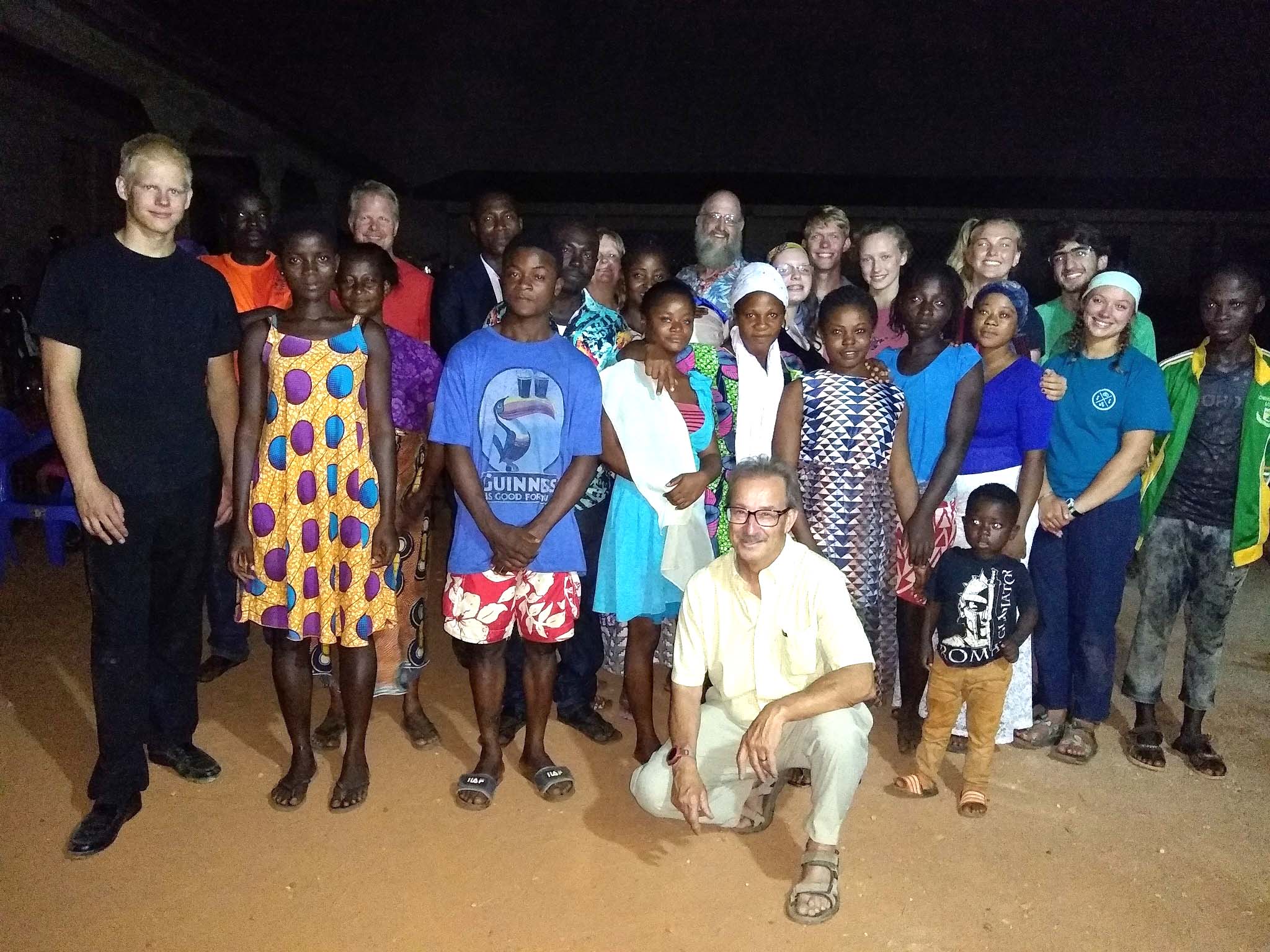

In July of 2019, six high school youth and seven adults from my church, Calvary Chapel, spent ten days in Ghana, West Africa. Our mission was to encourage some of Ghana’s Open Bible Church Planting Academy graduates who have planted churches, twelve in all, and to help the church plants with evangelism outreaches and small neighborhood style outreaches.
No one besides Brian, one of the adults, and I had ever been to Africa before, so it was quite an interesting cultural experience.
When we first arrived in Ghana on July 12, we were met by Kofi Gyansah, the director of the Church Planting Academy, and Rev. Okai Commey, the general superintendent of Open Bible Churches in Ghana. The next morning we began our mission to visit all the church plants. Currently there are two major regions where most of the new church plants are located, Accra and Kumasi.
While in Guana, we also visited an orphanage, a regular school, and a training school for the intellectually disabled and gave away school supplies, toys, and books. Perhaps the part of our ministry that interested the audiences most was a short three-minute skit performed by the youth that demonstrated how Jesus saves us from our sin and sets us free. It was powerful. At each school and outreach event where we ministered, the skit brought cheers and handclaps from the kids and staff alike.
Before the evening services, the team would go out into the neighborhood and visit homes and businesses, sharing the Good News. I was overwhelmed by people’s willingness to embrace Jesus as Lord and Savior and deeply gratified by God’s grace and mercy. We ended all the church services and outreach events with the skit, followed by an altar call.
The trip was not without its challenges. Anyone who has traveled to West Africa knows that things don’t always go as planned. Several of the team were visited with Montezuma’s revenge (traveler’s diarrhea). One of the youth leaders sprained a foot and spent most of the trip on crutches. Our rented van broke down on the third day, and unfortunately the rental company provided us a van without a luggage rack. As I explained to one of the youth leaders, I’ve found mission work is often 25 percent planning and 75 percent troubleshooting! We ended up tying the luggage to the roof of the van, which caught the attention of the police who manned the many roadblocks between Cape Coast and Kumasi. After a slight “fee,” we were allowed to continue, but it made for a long journey.
Empowered by God’s grace, we accomplished all of our goals and more. Many received Christ during our door-to-door evangelism ministry, and many more accepted Jesus at the evening services. We had twenty come forward to receive Jesus at one service alone. We handed out ten Bibles and left enough money to purchase forty more Bibles for all the new believers.
Even though this was a cultural adjustment for our team, our white skin proved to be a blessing. Kofi Gyansah said, “In Ghana, the white skin draws more attention and every Ghanaian wants to speak with a white man. This gave an advantage for more crowds to be pulled in to the church where the team was ministering. For example, at Pakyi in the Ashanti Region where a new church plant is located, we recorded no fewer than 150 people present to see the white [people] share the gospel and also sing to the glory of God.“
Kofi added, “Words cannot express our sincere appreciation for these wonderful opportunities we have had from this team. At Calvary Open Bible church, where I pastor, ten people were won to the Lord and four are active converts now. We are still following up on the remaining. Praise the Lord!”
Kofi summarized the results of the trip:

- Approximately 40 people were won to the Lord.
- Each of the churches visited has been revived.
- The communities now see the new church plants not as feeble, but as having a stronger force behind them.
- All the pastors were blessed with the seminar and the biblical information shared with them.
- Ghana Open Bible knows we have not been neglected!
We hope to start a new academy next year in Liberia and later in Sierra Leone. If your church is interested in learning more about this novel approach to training church planters, I would love to share the vision with you.

One of the great joys of this season of my life is having been asked by Vince McCarty, director of Global Missions, to serve as a “pastor” to our Open Bible missionaries. My role is to give them spiritual and emotional support as well as simply remind them of how proud we are to partner with them.
When we speak over the phone, I often ask the missionaries things like “Who’s watching out for you? What are you doing to take care of yourself? How can I be praying for you?” I ask these questions because missionaries dedicate their lives to sharing the gospel, often in challenging and isolated environments. While they pour into others, they often don’t adequately take care of themselves. As someone who has spent most of my life in the trenches of ministry, I understand how easily that can happen. But that’s where my role comes in: to encourage, support, and provide a listening ear.
Here are three things I encourage our missionaries to do (but they can serve as helpful reminders for all of us):
- Take your physical health seriously.
Our effectiveness and longevity in ministry are just as directly related to our physical health as our spiritual health. Whatever your age or medical history, chances are you could be healthier than you are right now, and there are choices that you can make (to eat better, sleep better, get your body moving, etc.) to reduce your stress. The challenge is to do them intentionally and consistently! The main culprits behind much of our depression and fatigue are a poor diet, lack of exercise, and inadequate rest. The good news is these are things that we can change.
- Start with just a few changes.
- Have a plan and stick with it.
- Do it “as unto the Lord” – integrated with your other spiritual disciplines.
“You made my body, Lord; now give me sense to heed your laws” (Psalm 119:73 TLB).
One of the biggest challenges for many in ministry is that we put all our effort into ministry, leaving too little time or energy to cultivate the relationships that breathe life back into us …
- Cultivate meaningful relationships.
One of the biggest challenges for many in ministry is that we put all our effort into ministry, leaving too little time or energy to cultivate the relationships that breathe life back into us: our marriage, our family, our mentors, and healthy friendships. For missionaries, cultural and linguistic barriers can sometimes complicate cultivating healthy relationships. Once again, our longevity in ministry is directly related to the health of our relationships. No more excuses – just do it!
- Plan social time on your calendar and keep it a priority.
- Never stop making new friends or trying new things.
- Recognize the people and activities that bring joy to your life.
“As iron sharpens iron, so one person sharpens another” (Prov 27:17 NIV).
- Be careful what you choose to think about.
We can’t choose what other people say about us or what they say to us, but we CAN choose what we allow ourselves to dwell on. Don’t waste time or energy beating yourself up or constantly worrying about what other people think about you. Ultimately, we are ALL inadequate unless we learn to cooperate with God’s purpose – and He will give us everything we need to fulfill that purpose. So much of the battle we face in ministry is won or lost in our thinking. But bringing God into the equation changes everything!
- Feed your brain with truth.
- Recognize the lies of the enemy.
- Choose to think about what GOD SAYS!
“Don’t copy the behavior and customs of this world… but let God transform you into a new person by changing the way you think” (Romans 12:2 NLT).
Let me encourage you today to take a moment and check in with a missionary or minister. A simple text, call, or email could be just the encouragement they need today. We’re all in this together, and we were never meant to do it alone. I am so proud and grateful to be a part of our Open Bible family.
About the Author
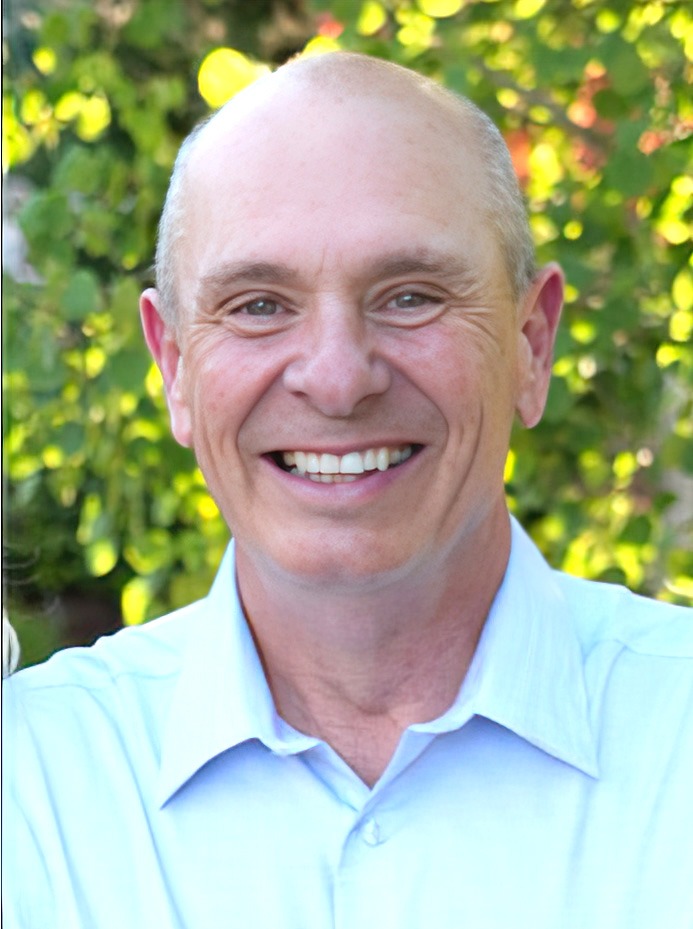
By Monte LeLaCheur
Monte LeLaCheur pastored Turning Point Church in Spokane, WA, for twenty-nine years after working there as his dad’s assistant for the previous fifteen years. Today he serves as Open Bible’s pastor to missionaries and as a Pacific Region Shepherd. He and his wife, Amy Jo, also have a Christian Counseling practice. Connect with them at www.insightscoaching.org
Around the World
Papua New Guinea: A Testimony of God’s Faithfulness
Published
5 months agoon
December 20, 2024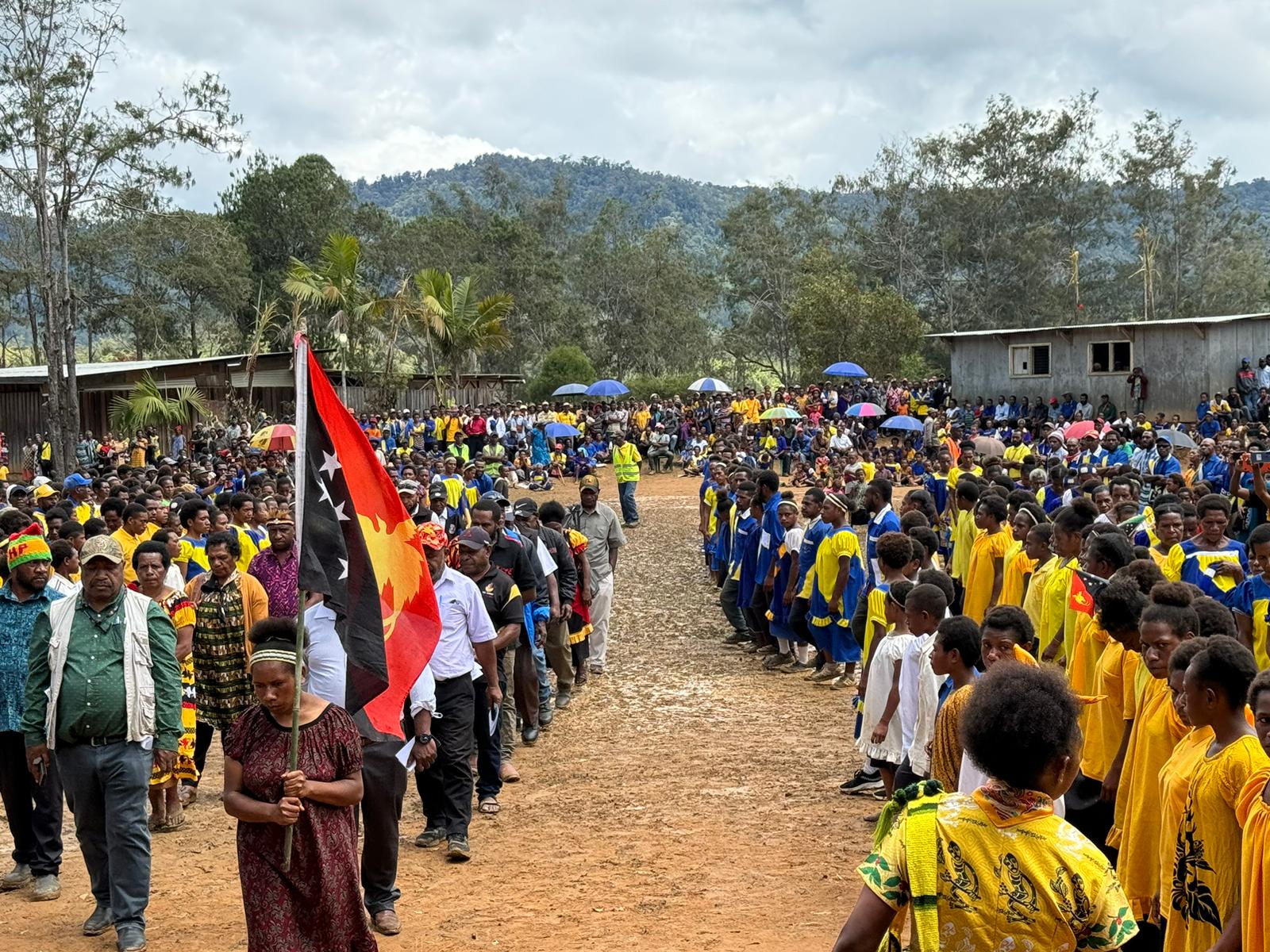
In September of 2024 former missionary Mark Brandt and I met at the San Francisco airport to fly to Papua New Guinea. We traveled to participate in the 50th anniversary of the Open Bible Churches there and attend the National Convention at the Open Bible Ivingoi Mission Station in the Eastern Highlands.
After taking three different planes and enduring some unexpected delays, Mark and I arrived at the airport in Goroka, Papua New Guinea. Field Director Joshua Essy and several members of the National Board of Open Bible Churches were there to greet us.
The National Convention and 50th Anniversary Celebration began Monday evening and was attended by more than 2,000 people
We loaded into three different vehicles and even had a police escort vehicle as we began our four-hour drive up the mountainous road that would take us to the Ivingoi Mission Station. When we arrived, the main entrance was surrounded by hundreds of people, standing on both sides of the road to welcome us. One doesn’t really feel worthy of such a reception, but we were so honored. When Mark got out of his vehicle, people flocked to greet him because he had not been back to PNG for 23 years. It was awesome to see how much they loved him and his family.
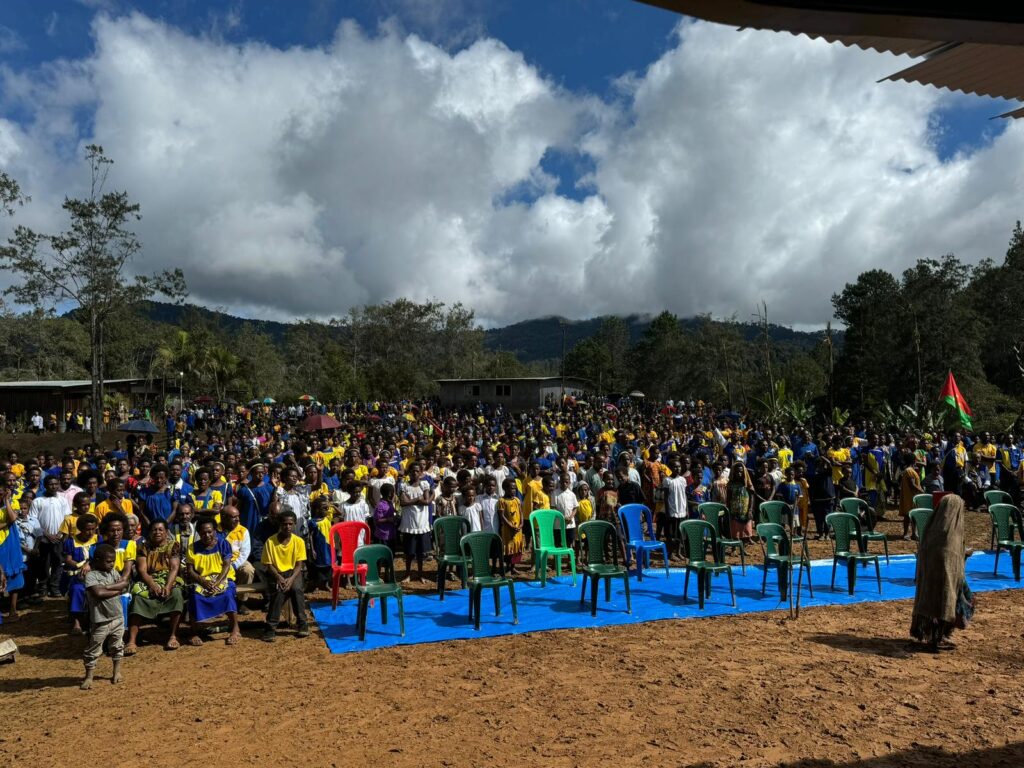
The National Convention and 50th Anniversary Celebration began Monday evening and was attended by more than 2,000 people. Attendees sat on the ground surrounding the platform because there was no building big enough to house everyone.
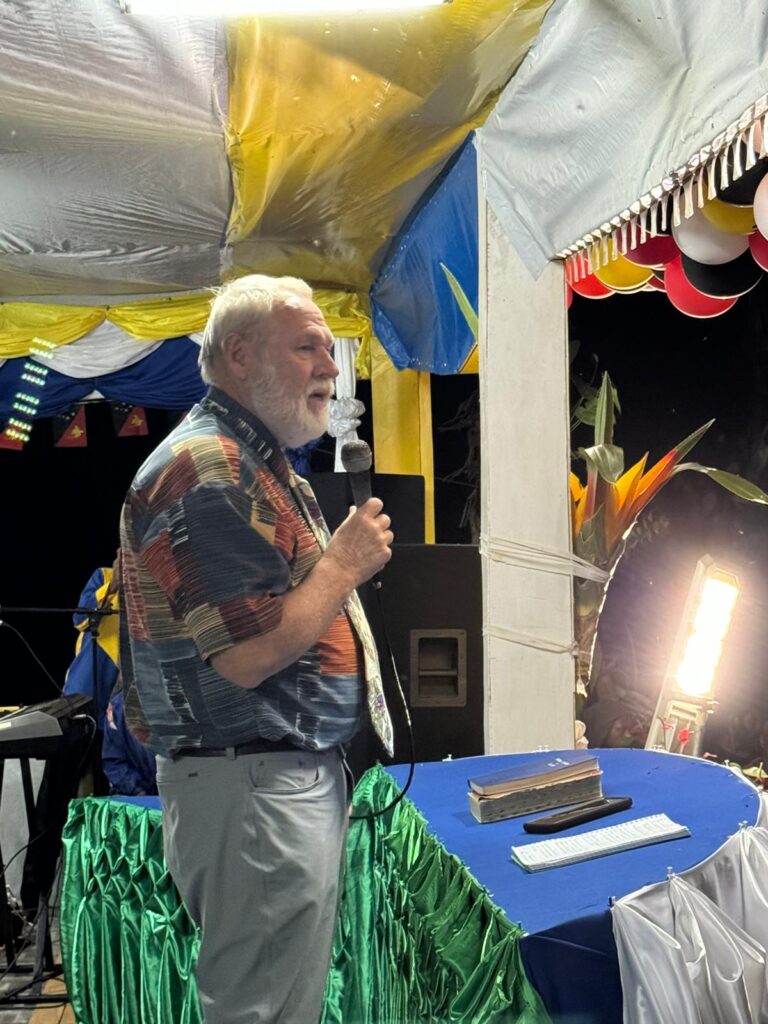
As I looked at this great crowd of God’s people, I thought of Psalm 89:1 that says, “I will sing of the Lord’s great love forever; with my mouth I will make your faithfulness known through all generations” (NIV). God is faithful to bless and sustain His work. Now in Papua New Guinea we were able to see the fruit of that faithfulness in thousands of lives that have been transformed by the power of the Gospel.
On Tuesday, they held a special ceremony to welcome all local government dignitaries, business professionals, and international guests.
The next day we visited the Open Bible Mission clinic, which receives staff and ambulance funding from the Papua New Guinea government. Several years ago, Global Missions sent funds to build a new maternity ward. Today, the clinic serves over 20,000 patients a year; it is the only health clinic for hundreds of miles and is surrounded by several villages.
The growth and expansion of the Open Bible work there is a wonderful tribute to all the missionaries, nurses, and nationals who have sacrificed so much and have gone above and beyond the call of duty for the Lord.
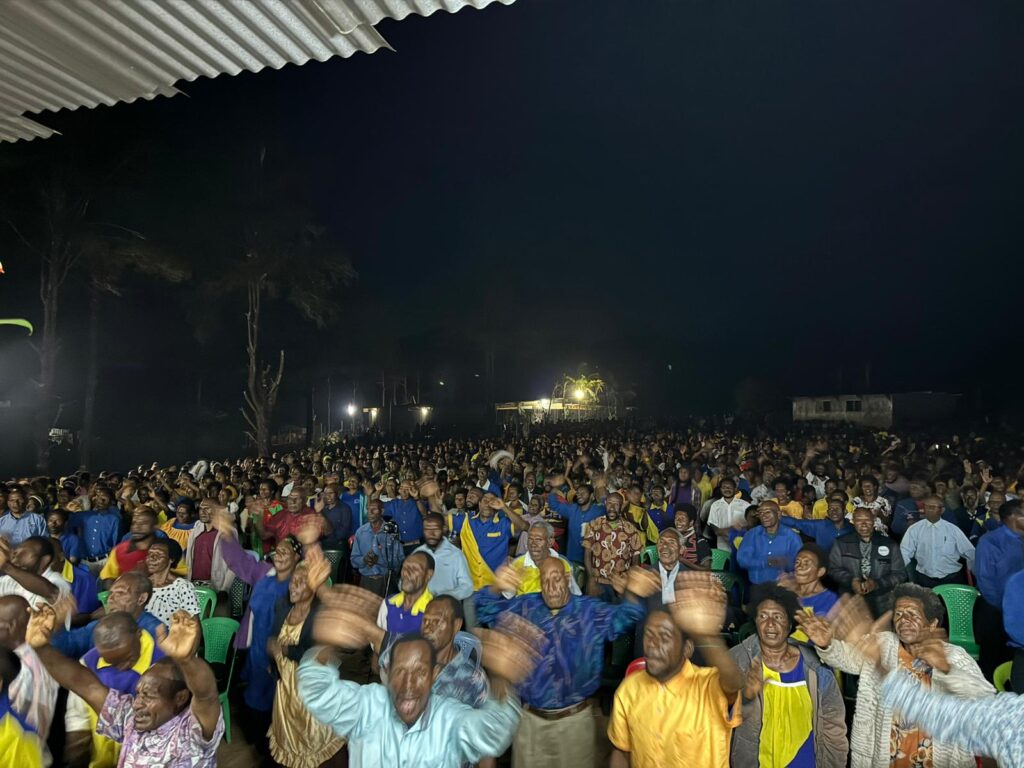
We now have thirty-seven Open Bible Churches in Papua New Guinea, and five new outreaches are being started. The growth and expansion of the Open Bible work there is a wonderful tribute to all the missionaries, nurses, and nationals who have sacrificed so much and have gone above and beyond the call of duty for the Lord. Now, with such a solid foundation, the work of Open Bible Churches in Papua New Guinea is poised for tremendous growth.
It was an honor to participate in the celebration of the 50th Anniversary and the PNG National Convention of Open Bible Churches. Additionally, it was a privilege to have former missionary Mark Brandt accompany me on this trip. I congratulate President Joshua Essy for his leadership and the leadership of the entire National Board. I know that the work of Open Bible will continue to grow and prosper under their guidance and direction.
About the Author
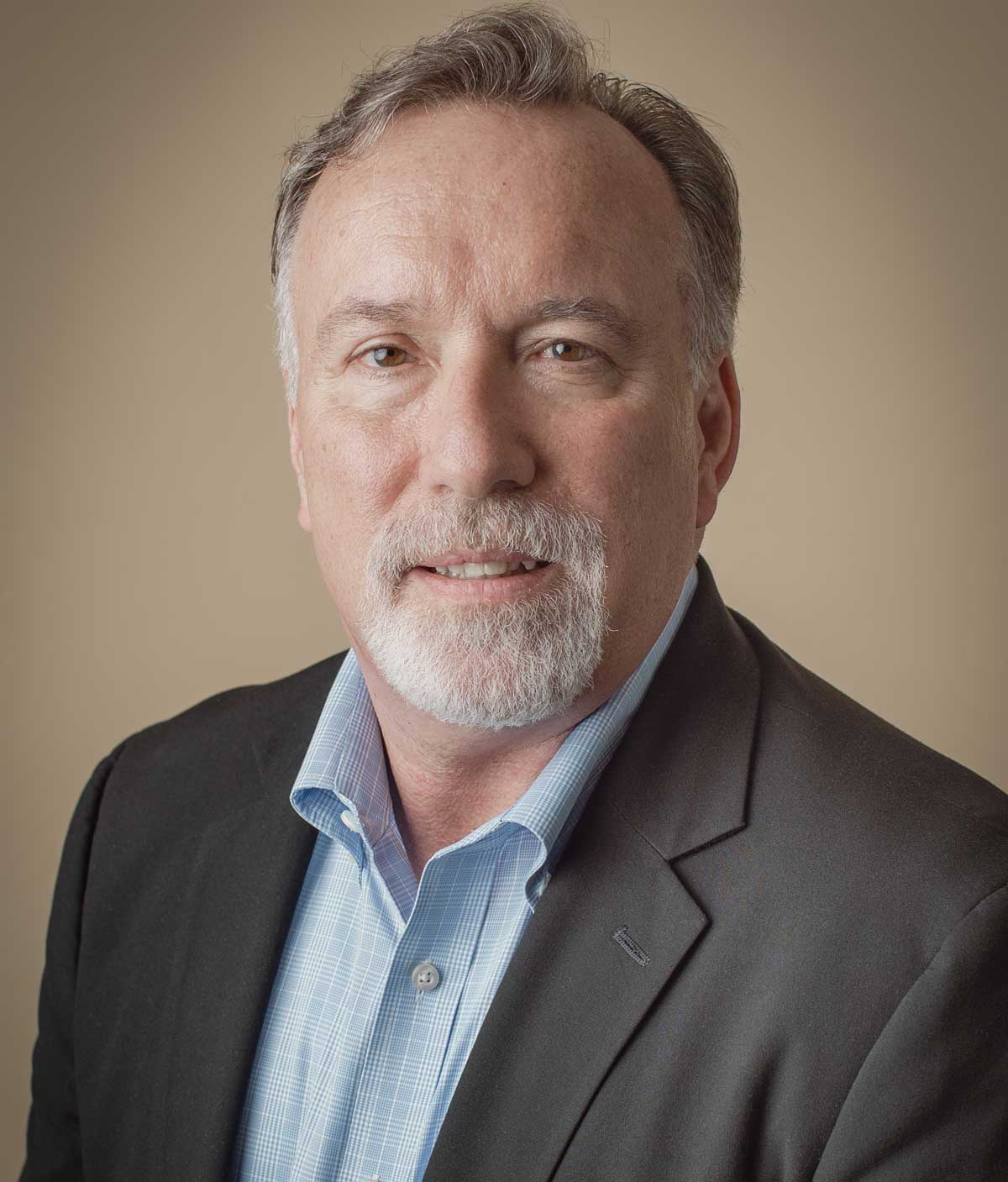
Vince McCarty
Vince McCarty serves as the Executive Director of Global Missions, giving oversight to Open Bible’s work in 55 countries of the world. He is thankful for the great missionary staff and all the national leaders he has the opportunity to serve with. He would like us to remember that the Great Commission is too big for anyone to accomplish alone and too important not to try to do together.
Around the World
Spiritual Renewal: The Road to Spiritual Awakening
Published
7 months agoon
November 1, 2024
My wife Lois and I have been working in the ministry for forty-one years, and we have seen God do so many amazing things. Our lives have been changed as we have witnessed major revival in Spain and Argentina and seen God move in countries across the globe. During the past seventeen years as I have served as Director of Global Missions, we have seen the Lord call many new people to the mission field, we’ve started new ministries, and we have begun brand new works in several countries.
Despite the beauty of these experiences, serving so many years without taking a break started to take its toll on me. I would read Matthew 11:28 (NIV), “Come to me, all you who are weary and burdened, and I will give you rest,” and I would think, “Well, I don’t feel very rested; I feel tired.”
Our Creator knows that our souls need rest; they need time to pull away and unplug. God created the Sabbath, and humans were designed to have times of Sabbath when we allow our minds, bodies, and souls to pause and breathe.
In the ministry of Global Missions, I’d needed to make several tough decisions and navigate intense challenges, and I had not allowed my mind, body, and soul to assimilate afterward. When we are working for the Lord, whether in the pastorate or in other leadership positions, we feel the need to press on. In a culture where busyness is an obsession and being still is seen as being apathetic, rest is often equated with laziness.
Humans were designed to have times of Sabbath when we allow our minds, bodies, and souls to pause and breathe.
Without rest, however, we can miss the presence of God. He invites us into rest so that we might know Him more deeply. As Mark Buchanan says in his book, The Rest of God, “Sabbath is both a day and an attitude to nurture such stillness. It is both time on a calendar and a disposition of the heart.”
In May of this year, the board of Global Missions allowed me to take a five-week sabbatical. The first week was an adjustment, but as the days progressed, I felt my hunger for God return. I spent long stretches reading the Word and praying (which at this stage involved more listening than talking). As I finally processed the challenging season I had experienced, I felt a new peace sweep over me. I regained focus and ambition for the ministry and remembered what I already knew: God was always in control of everything.
Today in the Church we crave revival, longing for spiritual awakening. But to have a spiritual awakening, we need to first have spiritual rest and renewal, which starts by taking a pause (sabbatical). Because the truth is, the work is never done (or never done to our satisfaction). There will always be more work than we can finish. When we rest in God, we are able to encounter the parts of Him we have been missing, which is a gift.
When I was in Trinidad during April 2024 for the 70th Anniversary of Open Bible Standard Churches, we attended several church services. Each time, when an invitation was given to come to the altar after the preaching of God’s Word, the people would swarm to the altar. It was so refreshing to see such a spiritual awakening, to see people so hungry for more of God. However, this time of awakening in Trinidad started after months of intercessory prayer, with people taking time to pause, seek God’s face, and listen to His voice.
God is always speaking, but we are not always listening. We fail to be intentional, forgetting to pause and connect with Him, ignoring His invitation to boldly enter His throne room and receive what we need. We fail to listen, missing His words that sometimes pierce but always heal.
Sabbatical is more than a vacation; it is a disposition of the heart.
Psalm 42:1-2 says, “As the deer pants for streams of water, so my soul pants for you, my God. My soul thirsts for God, for the living God. When can I go and meet with God?” Just like the deer, if we want God to fill us, we must stop and take the time to drink His living water.
Now, as I endeavor to incorporate sabbatical into my everyday life, I try to leave work at the office and not bring it home. I know how difficult this can be for us who are in ministry, but the truth is, not everything is urgent. I don’t have to answer the email that came at 6:00 pm. Sometimes I leave my laptop at work or in my car (which is in the garage), so I am not tempted to answer anything after I get off work. Weekends belong to my family, and I try to keep those days sacred, spending time in the presence of my family and the presence of God.
Spiritual rest starts when we quiet our minds and allow God to speak to us. Sabbatical is more than a vacation; it is a disposition of the heart that keeps your life focused in the right direction. When our spirits reconnect with the Holy Spirit, we receive healing and renewal on every level, creating space for the spiritual awakening we all long for.
About the Author
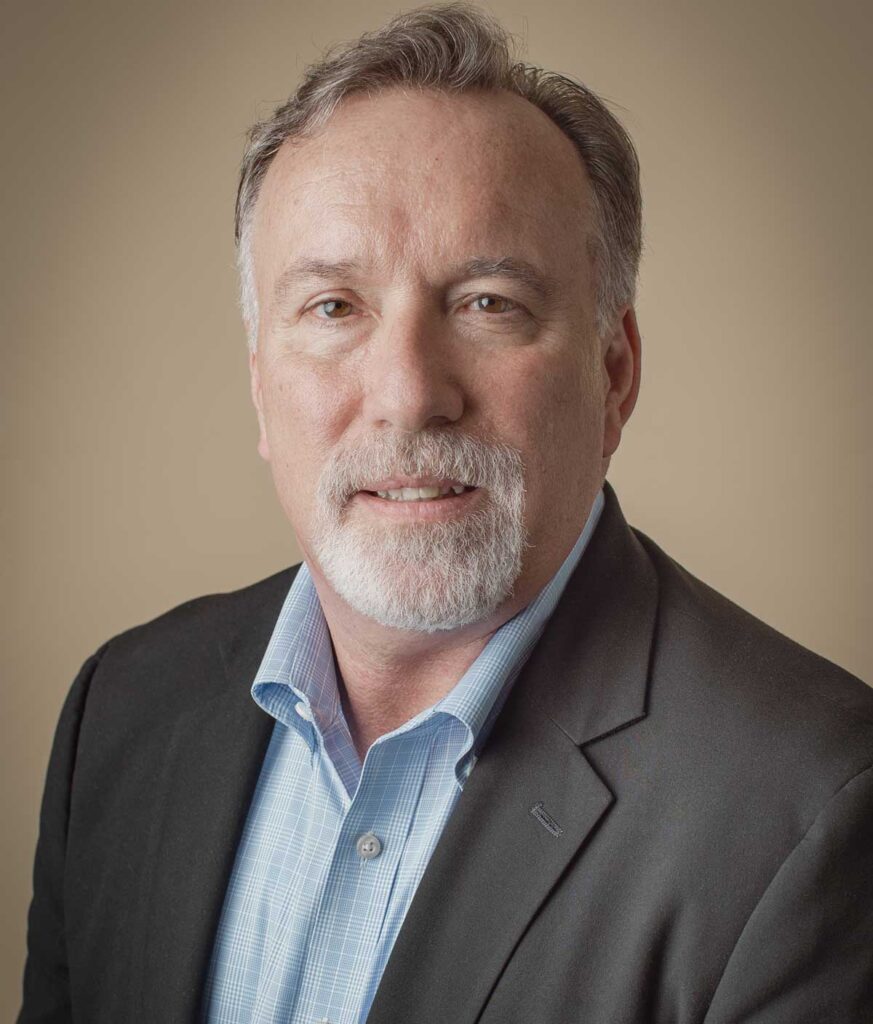
Vince McCarty
Vince McCarty serves as the Executive Director of Global Missions, giving oversight to Open Bible’s work in 55 countries of the world. He is thankful for the great missionary staff and all the national leaders he has the opportunity to serve with. He would like us to remember that the Great Commission is too big for anyone to accomplish alone and too important not to try to do together.


